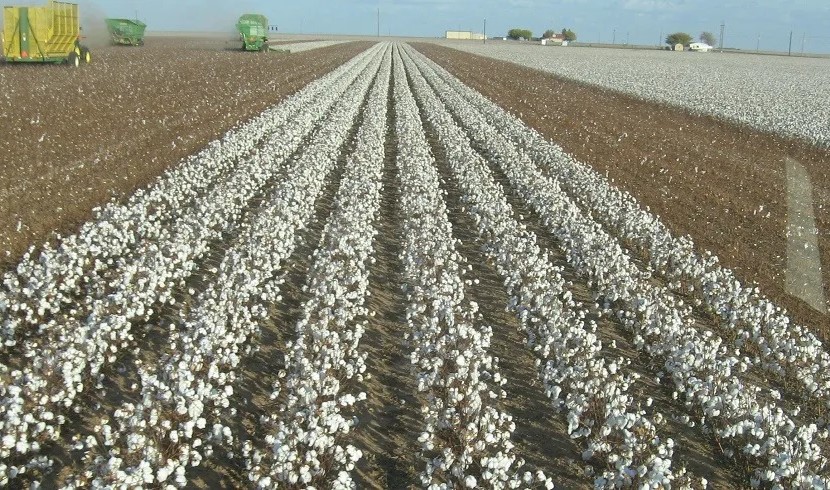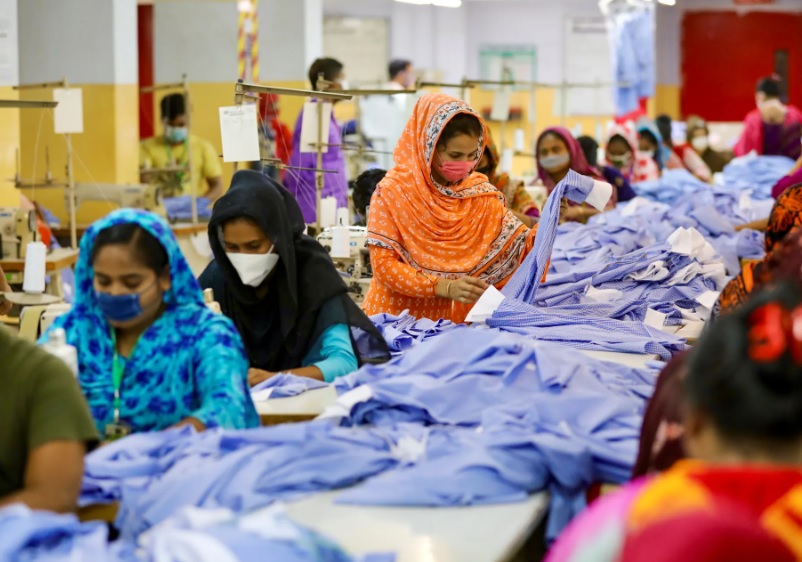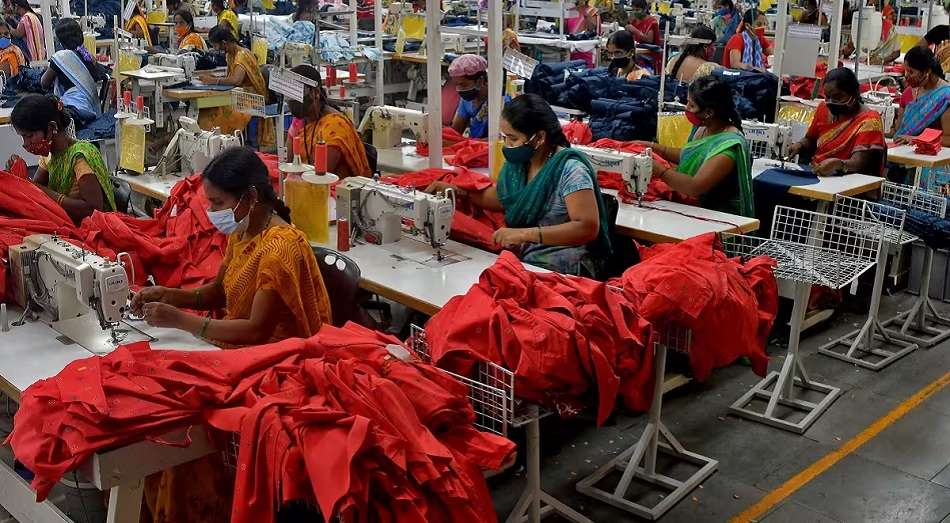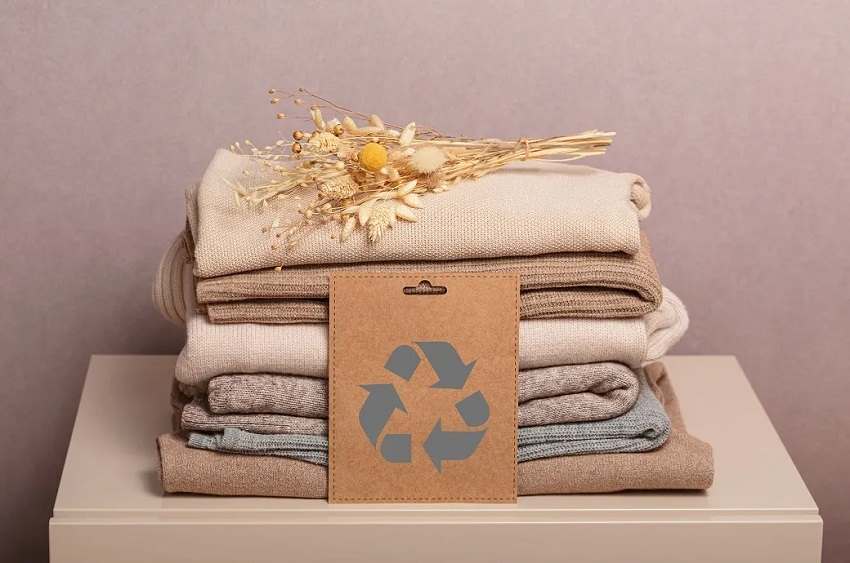FW
Brands of VF Corporation will no longer use fur, angora or exotic leather in their products. The animal-derived materials most often used by VF and its brands are leather, down and wool.
The policy outlines which animal material are prohibited and sets formal guidelines for the procurement and use of approved materials by the company’s brands and global supply chain partners.
VF has a history of animal welfare actions. Its brand Timberland partnered other footwear brands, tanneries and retailers to form the Leather Working Group to promote responsible practices within the leather industry. Another brand, The North Face, has a global standard through which any brand can evaluate and certify its complete down supply chain. Also VF participates in programs centered on best practices in the wool industry.
VF believes all animals within the global commercial supply chain should be treated with care and respect. As it continues to promote the development of viable commercial substitutes to animal materials, this policy will help to ensure that the materials used today are procured from sources that prioritize animal welfare and responsible business practices.
The company also developed and adheres to existing policies for the purchase and use of Conflict Minerals, Cotton Country of Origin, and Forest Derived Materials, in addition to a Restricted Substances List for its chemical management program.
German safety, testing and certification giant, TUV SUD, will organize a seminar for textile manufacturers on May 12 at Crown Plaza in Jaipur. The focus will be on technical solutions for textile manufacturing and lean management with an aim to help them access global markets by improving overall quality of their products.
In the textile and apparel industry, pressure to be cost effective and dealing with complexities of global supply chain can be challenging to ensure end-to-end quality control. At the same time, rapidly evolving fashion trends require businesses to constantly update their offerings. The seminar on technical solutions will help manufacturers overcome such challenges. TUV SUD supports manufacturers with safety and quality guidance while helping minimise costs with testing, inspection, certification and training services. Similarly, the session on lean management will focus on identifying each step in a business process and eliminating the steps that do not add value. This concept is known to help businesses improve the long-term operational efficiency.
Announcing the seminar, Ezhilan Neelan, Vice President, Consumer Product Services, TUV SUD South Asia, commented that the Brand Equity Foundation (IBEF), India is the second largest textile exporter in the world. There is immense potential in the sector to further strengthen its global position and contribute more to the growth of the country. Such technical sessions help manufacturers grow their business and raise efficiency levels alike. TUV SUD offers a one-stop solution across the entire textile product lifecycle. The global expertise in lean management can help businesses go a long way in reducing operational costs. The company looks forward to interact with the textile industry in Jaipur through this seminar.
In 2015-16, textiles and apparel industry employed 105 million people, 13 times more than the information technology sector. If managed well, it has the potential to grow immensely in the coming years. The sessions will be conducted by globally acclaimed experts at TUV SUD. TUV SUD has state-of-the art textile testing labs in Tirupur and Gurgaon and leather testing labs in Ambur and Ranipet areas. These labs have extensive resources for the products to achieve compliance to national and international chemical, quality and performance standards.
Innovation awards were presented at Techtextil. Among the products were a bicycle lock made of high-tech textiles, an intelligent knee brace and a seamless load-securing net.
Centexbel from Belgium presented an intelligent knee brace that supports patients during the rehabilitation phase after knee operations. A textile sensor identifies the angle of the knee in real-time and informs the patient of this accordingly. It also offers personalised exercises via an app.
Peterseim Strickwaren presented a basalt knitted fabric that protects maritime systems, such as buoys, from environmental influences and cuts maintenance costs by up to 40 per cent. Start-up Texlock was chosen for its innovative, textile-based bicycle lock, which is light, flexible and does not scratch the bicycle’s paintwork thanks to its soft surface.
Vetex from Belgium is a company specialising in coating and laminating technology. Its OC2PUS technology permits a polyurethane coating to be applied to flexible substrates, i.e. to functionalise textiles, without the use of solvents. To this end, specially developed polyurethane resins, which harden chemically during the coating process, are used.
Durafiber Technologies from France was chosen for an alkaline-resistant polyester HT yarn. The yarn retains its original technical properties almost unchanged even after being in contact with alkaline products at high temperatures for several days. Techtextil is being held in Germany, May 9 to 12.
By 2020, 70 per cent of the tanneries LVMH sources from will be Leather Working Group certified. The aim is to make that 100 per cent by 2025.
For the past year, Louis Vuitton has been using salpa, a type of reconstituted leather, to produce some of the models for its leather goods products, which enables it to avoid using real leather. LVMH took part in drafting the new version of the Animal Sourcing Principles in 2016. The document sets out general principles of animal well-being in supply chains and is part of a long-term commitment to improve and monitor breeding practices.
Exotic leathers, including crocodile leathers, are also the subject of particular attention. LVMH owns an exotic leather tannery and several crocodile farms. Luxury group LVMH has determined a best-practice matrix, working with recognised independent experts, which is used as a benchmark during the audits conducted at the farms.
The group uses leather offcuts to reduce waste. The group is working on eliminating chemical substances that are not compliant with the LVMH restricted substance list by specifically targeting hexavalent chromium in its leathers. LVMH has been setting an example through its dynamic growth since its creation in 1987.
ITEMA has finalized agreements to acquire 61 per cent of shares in Lamiflex, a leading supplier of technical composite products, and a minority stake in NoeCha, provider of high-tech, wide-format printing solutions.
The acquisitions are part of a wider strategy of ITEMA and its shareholders, namely the Radici family with 60 per cent shares and the Arizzi e Torri families with the remaining 40 per cent. The aim is to accelerate continued expansion and secure long-term profitability of ITEMA by diversifying into complementary, high-growth markets through stakes in innovation-driven companies which offer significant economies of scale to fuel the joint development of each other’s’ core businesses.
Headquartered in Ponte Nossa, Bergamo province, Lamiflex specializes in composites materials, such as carbon, glass and Kevlar and offers a portfolio of innovative solutions and patented new products with exceptional versatility and adaptability for industrial applications, catering to industries as wide-ranging as weaving machinery, medical and aerospace, among others.
NoeCha, is a Bergamo based quickly scaling up young company which offers high-tech printing solutions, such as the revolutionary wide-format industrial UV-LED flatbed digital press, the NoeCha ONE, for photo-realistic, high impact graphics. NoeCha ensures excellent printability on different type and size of material up to 3.2x2meters at production speeds with a native 600 dpi x 600 dpi image resolution.
These acquisitions will lead to optimizing processes and improving product performances, as well as providing advantages derived from a shorter, more sustainable supply chain, lessening the environmental impact of the joint operations, in line with the principles of a circular, greener economy.
Year 2017 has started on a positive note for Italian textile machinery manufacturers. For the first quarter, orders have increased both in Italy and abroad. Orders confirm a positive trend in major foreign markets, and a climate of trust for Italy’s textile industry.
The order index for the country’s textile machinery, from January to March, grew 24 per cent compared to the same period in 2016. The index value stood at 113.7 points. This growth came mostly from markets abroad, where the index came in at an absolute value of 124.1 points, a 26 per cent rise. In Italy, the increase compared to the period from January to March 2016 was 16 per cent, with an absolute value of 71.5 points.
The index data for the first three months of the year confirm positive signs registered by businesses in various foreign markets. The dynamic trend for Italy’s domestic market originates from a renewed climate of enhanced trust that is currently perceived in the textile sector. This has been triggered by the government’s commitment to enact a range of significant incentives for the country’s manufacturing system.
Creativity, sustainable technology, reliability and quality are the characteristics which have made Italy a global leader in the manufacturing of textile machinery.
Primo 1 D’s ultra high-frequency RFID yarn enables the embedding of RFID tags directly into garments or materials. The yarn is meant for textile manufacturers. The technology is not only intended for use in apparel and retail but is also being trialed on industrial products that do not lend themselves well to the attachment of an adhesive or hanging tag.
The e-thread is an RFID yarn for which the antenna is built into the yarn strand itself. The company uses standard RFID chips which typically measure 445 micrometers by 490 micrometers or smaller.
Since the technology was introduced, the company has further developed it to create improved impedance-matching techniques. This means that the e-thread can be read at twice the distance, from seven meters to 12 meters. It can also be shorter than its predecessor, depending on the application.
Primo 1 D is a French technology company. It has reached a throughput of five million units with the launching of its new production equipment. This is largely due to investments over the last two years in the industrial phase of ramping the manufacturing and production technology and related equipment. The RFID-enabled thread or yarn was developed as part of a European project to develop intelligence in textiles.
Remediation work of the country's garment factories is unlikely to be completed within the stipulated timeframe as 77 per cent of safety flaws in these factories have so far been fixed, says Accord. Some 1,655 factories are covered by Accord while 1,360 are behind schedule.
Rob Wayss, Executive Director and Acting Chief Safety Inspector of Accord stated there is wide consensus among signatories to the Accord brands, the global apparel companies in the retailers, global unions and its local affiliates that the work of Accord will not be completed by June 2018. The progress related to capacity of the social partners and to regulate safety in the industry will still be inadequate.
Looking beyond 2018, apparel brands and retailers and unions are discussing how to best ensure safety regulations and safety rights in RMG industry are adequately upheld developed. About 77 per cent of the initially identified fire, electrical and structural flaws, assessed by the Accord engineers, has been remediated and more than 400 factories have completed 90 per cent of their remediation work, Joris Oldenziel, head of public affairs at the Netherlands office of Accord, commented while presenting the progress paper. He further added saying that the Accord remediation fund will provide qualified suppliers with access to direct funding for 50 per cent of remaining remediation costs for covered factories with no current Accord business and this support is limited and will be implemented on a 'first come, first served' basis.
As Accord approaches its final year, a major focus will be to establish safety committee and safety training program as many as possible and effectively address safety complaints filed at factory safety committees or through its safety complaint mechanism.
Cambodia’s economic growth is forecast to continue at a healthy seven per cent for 2017-2018. Strong garment exports and from agriculture industries are at the heart of the positive outlook. Readymade garments account for about 80 per cent of the country’s total exports.
Cambodia’s exports are expected to expand 11 per cent this year, outpacing import growth at nine per cent while tourism revenues should remain strong this year and next year. The strong economic situation is due to rising number of tourist, a steady increase in foreign investment, higher consumer spending due to an increase in minimum wage for workers in the garment industry, and a decline in poverty.
But there is a need to ensure transparency and accountability, which in turn eliminates corruption in social and public affairs, and makes for continued stable economic growth. However, Cambodian exporters need to diversify from their current focus on the European Union. Brexit and the EU’s ongoing economic instability could endanger Cambodian businesses. Domestic risks stem from vulnerabilities in the financial sector, partly traceable to its rapid expansion, in particular the proliferation of microfinance institutions. There is a need to lower the cost of doing business and improve productivity growth and competitiveness.
Ethiopia is aiming to generate $30 billion from export of garment and textile by the year 2025. This is an ambitious target for a country whose shipments are only $115million now. This is the first time Ethiopia, spelled out its vision in such detail. However, it is not the first time for the government to look to the textile and clothing supply chain as one of the country’s key targets for growth.
According to Arekbe Oqubay, Special Advisor to the Prime Minister, the plan will transform Ethiopia to a compelling new sourcing hub for brands, retailers and their suppliers. Oqubay further explains by 2025 the company wishes to make Ethiopia the leading apparel and textile manufacturing hub in Africa capable of exporting up to $30 bn. It is a challenge, and they believe if Vietnam can do it, if Bangladesh can do it, Ethiopia can do it even better.
Oqubay until 2010 the prime focus was on agriculture, an even in the last 5 years it has been in transition. Also, the company is looking for manufacturing then apparel and textiles is top priority because it’s the largest employing industry, and also the international market is significant: every household requires apparel and textile products.
The target set is 300 fold rise in shipments within eight years. Back in 2015, the country’s annual export for clothing was $73.25 million. This shows what the Horn of Africa nation is up against.











